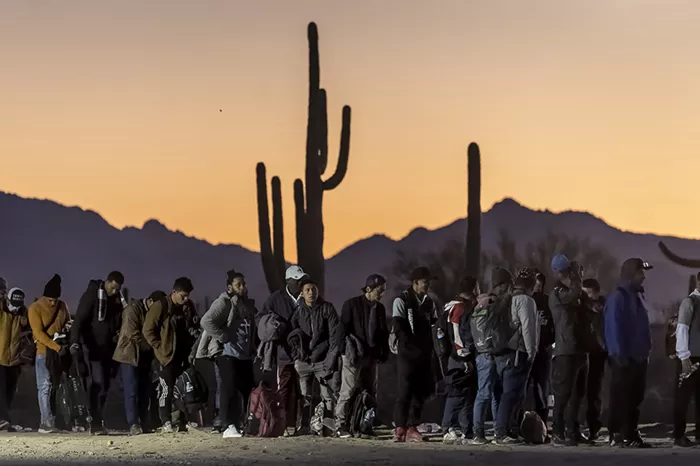Border Patrol agents are facing increasing pressure as they enforce controversial immigration policies, leading to a growing need for support within the agency. To address this, the Border Patrol is expanding its chaplaincy program, training more agents to provide spiritual care to their colleagues both on and off duty.
Spencer Hatch, assistant chief and manager of the chaplaincy program, acknowledged the challenges agents encounter amid public scrutiny. “It’s difficult as opinions shift, and we find ourselves caught in the middle,” he said.
Understanding Border Patrol Chaplains
Unlike military or traditional law enforcement chaplains, Border Patrol chaplains are typically lay agents endorsed by their faith communities. They undergo a 2.5-week training program in Florida to prepare for their roles. Over the past four years, the number of chaplains has nearly doubled from 130 to around 240. Training sessions are held three times a year at various Border Patrol stations. The most recent class near Miami graduated about a dozen personnel from the Border Patrol and other agencies.
The chaplaincy program, along with a non-religious peer support initiative, began as grassroots efforts in the 1990s. Chaplains maintain their regular duties while being available for support when needed.
Challenges Faced by Agents
Border Patrol agents are driven by a commitment to secure U.S. borders against threats, including powerful drug cartels. They often face the harsh reality of rescuing migrants who are lost or in distress in the unforgiving desert landscapes along the southern border.
However, many agents feel that public perception casts them as barriers to migrants seeking better lives in the U.S. This disconnect leads some agents to tell their children to describe their work as “government work” out of fear of backlash, especially in border communities. The emotional strain from this situation can be significant, adding to the already dangerous and isolating nature of their jobs.
Chaplains play a crucial role in helping agents cope with these pressures, aiming to prevent issues such as family crises, substance abuse, and even suicide among the approximately 20,000 agents.
The Role of Chaplains
Most Border Patrol chaplains identify as Christian, though there are also Muslim and Jewish representatives. They focus on providing comfort rather than conducting faith-specific services and only discuss religion if initiated by those they assist.
Chaplains support agents during critical moments—such as when an agent is dealing with suicidal thoughts or when families are notified about an agent’s death on duty. Training includes role-playing scenarios that help prepare chaplains for real-life situations they may encounter.
Hatch emphasizes the importance of balancing law enforcement vigilance with empathy for both fellow agents and migrants. Many agents express particular concern for migrant children who fall victim to smugglers.
Yaira Santiago, a newly trained chaplain and former schoolteacher at a migrant processing center in San Diego, shared her approach: “I try to give them support within my role; I always wear a smile.”
Chaplains rely on their faith and training to provide meaningful assistance. Matt Kiniery, an agent with 15 years of experience in El Paso, Texas, noted that sometimes just being present is enough to help others cope during uncertain times.
The Border Patrol’s chaplaincy program continues to grow in response to the emotional demands placed on its agents amid a polarized immigration debate.
Related topics:
- Kemi Badenoch Weighs Visa Cap if Tories Regain Power
- Immigration and Housing Woes Fuel Turbulent Election Campaign in Ireland
- UpdatedSchools Brace for Chaos as Fears of Mass Deportations Grow


